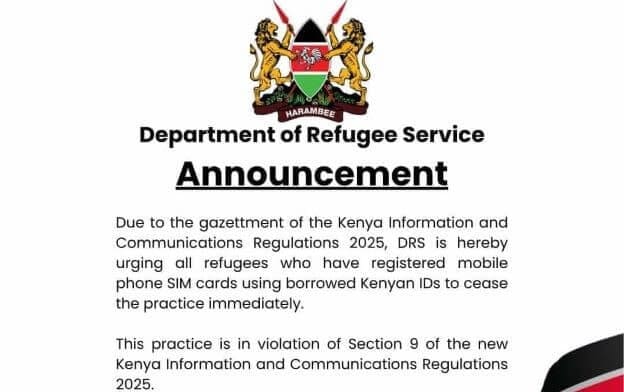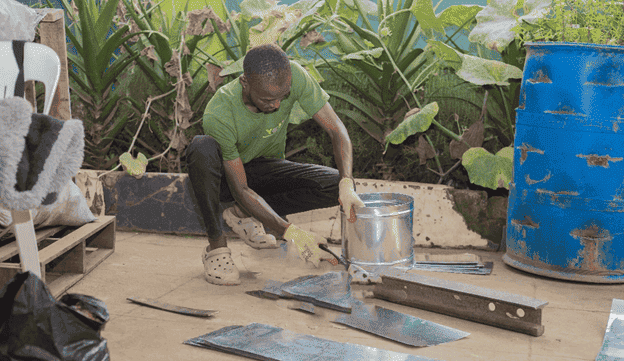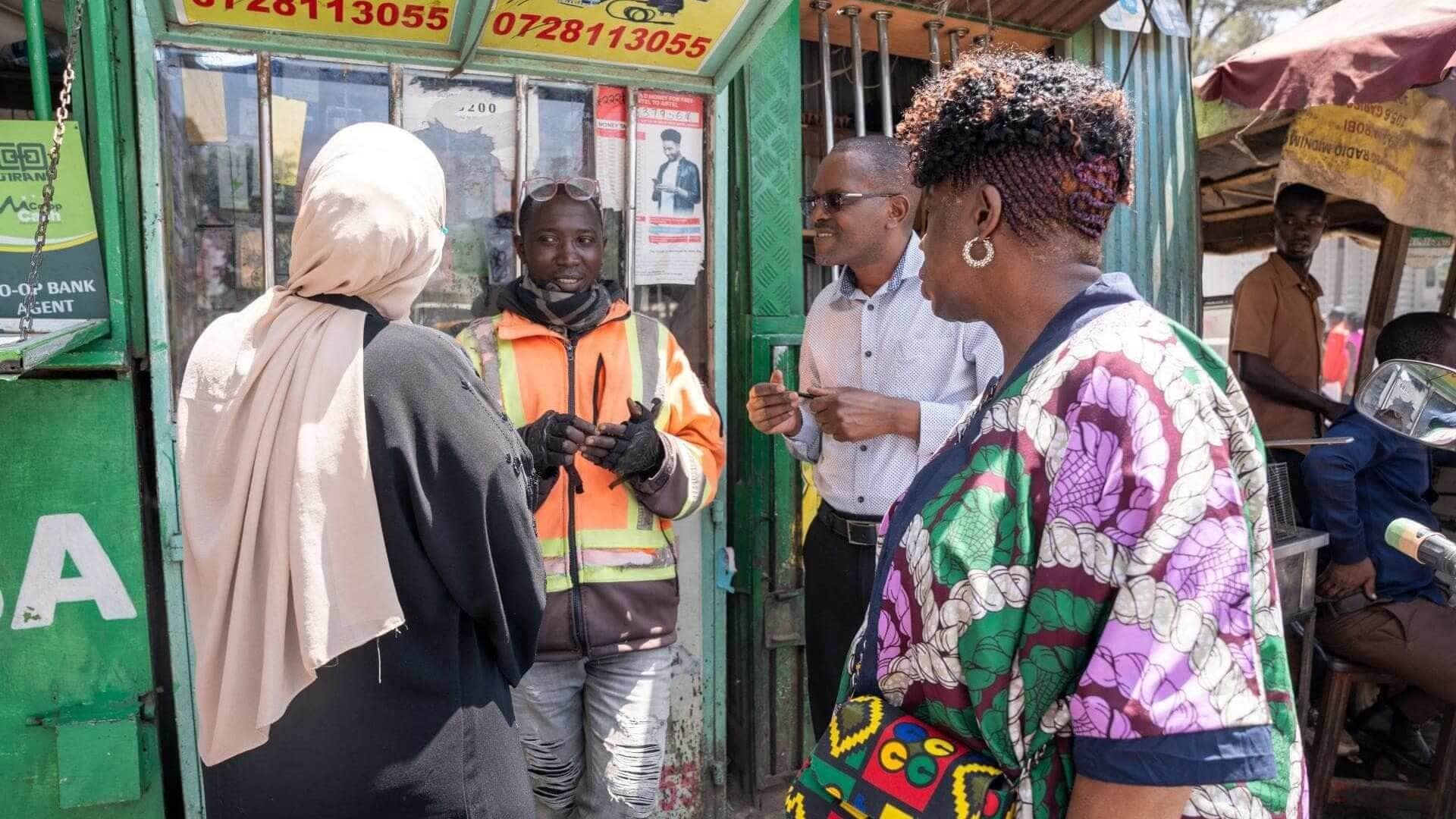Empowering women and addressing SGBV
Empowering women and addressing SGBV
Empowering women and addressing SGBV
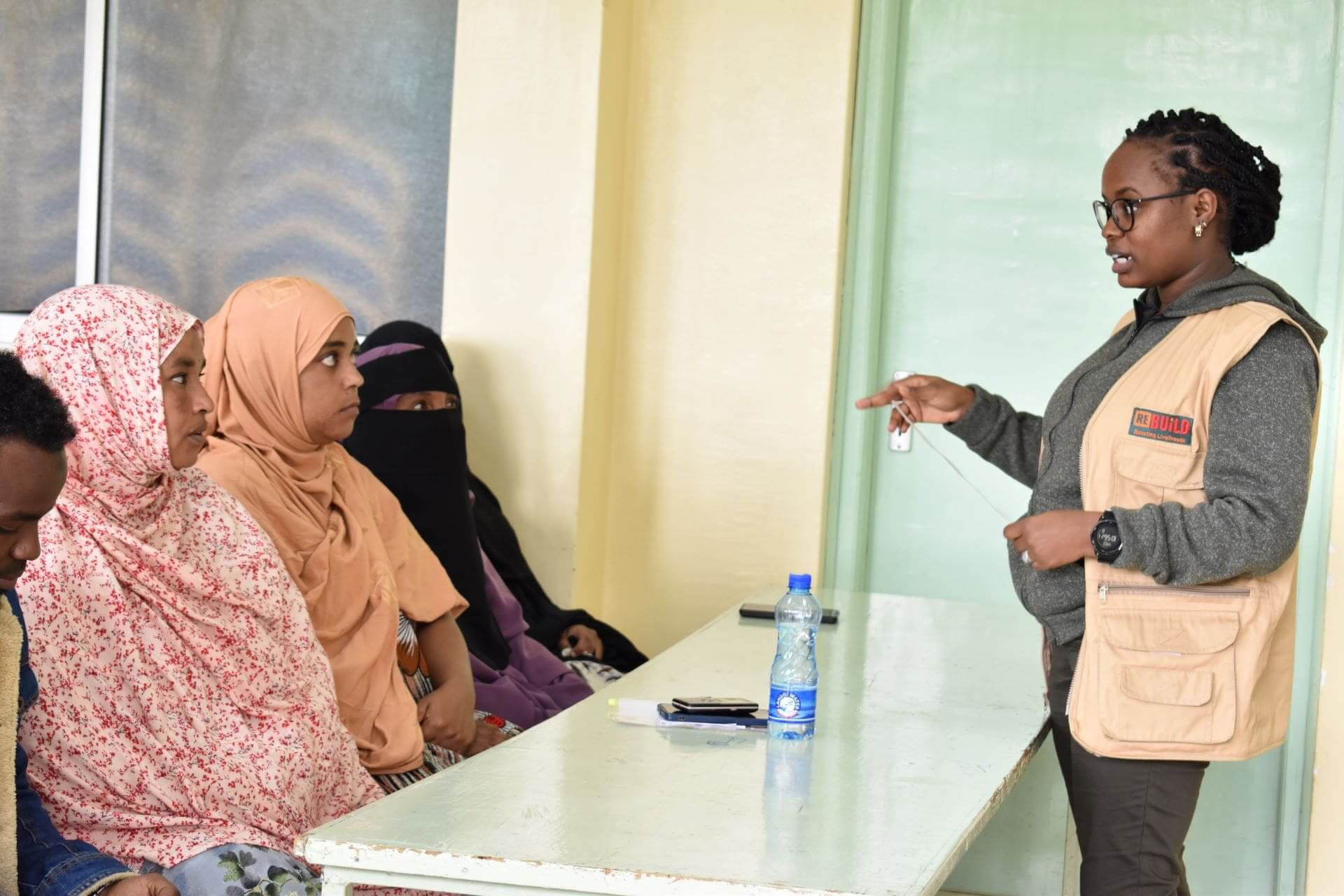
August 13, 2024, Nairobi. IRC’s Dorcas Mwangi leads a SGBV session in Eastleigh, Nairobi. These sessions provided dialogue, education, and empowerment, helping participants acquire tools to prevent and respond to SGBV. (PHOTO: Nancy Mwangi/TheIRC)
In July and August 2024, community discussions on Sexual and Gender Based Violence (SGBV) were held in Eastleigh, Rongai, and Kawangware/Kabiria, with 80 participants (46 women and 34 men), including 69 refugees and 11 host community members from 8 USLAs. These sessions provided dialogue, education, and empowerment, helping participants acquire tools to prevent and respond to SGBV.
Re:BUiLD has been offering wraparound services specifically designed for women in targeted neighborhoods, focusing on protection and legal support.
For livelihood programs to work effectively with urban refugees and host communities, recognizing the unique challenges and restrictive gender norms within both groups—especially among women—is essential. Beyond meeting basic needs, these efforts promote women’s participation through community dialogues that challenge limiting socio-cultural and gender norms.
Participants first explored definitions and impacts of SGBV, which laid the groundwork for discussing prevention strategies focused on community-based approaches. The forum highlighted how men and women could contribute to creating safe spaces and networks. The call to prevent SGBV emphasized that everyone plays a role in fostering a safer community.
Response mechanisms were also covered, including the importance of timely reporting and the role of USLAs as a support system for survivors. The sessions outlined available medical services, legal rights, and psychosocial support, giving participants a clear understanding of accessible resources.
A summary of Nairobi’s SGBV response systems provided information on contacts and procedures for accessing help. Participants gained insight into how SGBV relates to human rights and broader issues like women’s empowerment and economic challenges. Promoting gender equality, challenging stereotypes, and ensuring timely responses emerged as vital for justice and community well-being.
In conclusion, these SGBV discussions underscored the importance of community involvement in combating SGBV. By sharing knowledge and fostering collaboration, Re:BUiLD supports communities in addressing SGBV and promoting gender equality.
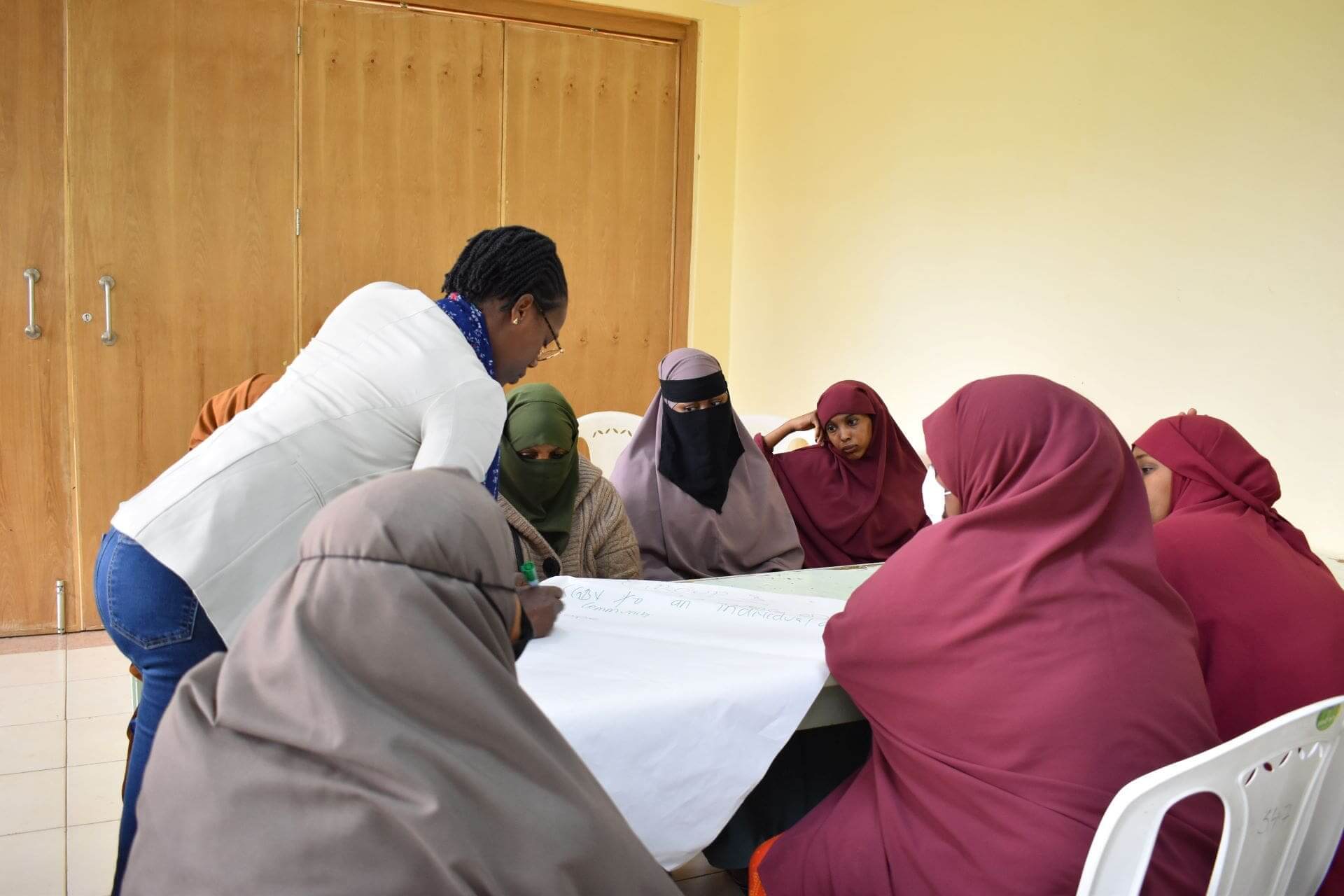
August 13, 2024, Nairobi. IRC’s Caroline Boke interacts with clients during the SGBV session in Eastleigh. (PHOTO: Nancy Mwangi/TheIRC)
